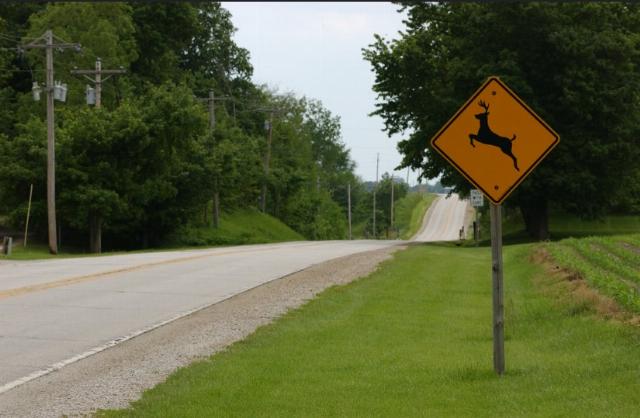A legal loophole everyone should know about
It was dark. It was early — 6:20 A.M., in fact. Seventy miles per hour — a bit over the speed limit, yes, but nothing unusual for a rural highway at that time of day. Or an interstate at any time of day, for that matter.
And there she was, suddenly in the headlights, just…standing there. It all happened so very, very fast. I swerved, desperately attempting to miss her. I failed. I hit her at an angle, but still in the head and chest. At least I can rest easy knowing that she didn’t suffer.
That doe died instantly, thankfully. My car, on the other hand, lasted a little bit longer. It was still running! I could hear parts of my car falling off, but still it ran. I took my exit and decided, in my adrenaline-fueled shock, to stop as usual for coffee. It was, in fact, a very good decision.
My car now making horrible noises and beginning to belch smoke from under the hood, nevertheless, I pulled into the take-out lane. I could barely speak, but the lovely staff knew my car, and my regular order, and, despite my inability to talk, waved me up to the window. When I got to the window, all I could say was “I hit a deer. I hit a deer.” They didn’t charge me for my coffee that morning.
As I pulled away from the coffee shop, my car lit up with warnings. It was severely overheated from fluid loss. Realizing I could not make it the additional four miles to work, I backed up, returned to the coffee shop parking lot, and shut off the (amazingly) still running engine. I asked the girls there if I could stay while I sorted things out, and they enthusiastically said yes.
Several hours later, I made it to work in a lovely rental car, and three weeks later, I had purchased a new (well, new to me, anyway) car.
So why am I telling this story? Because there is a tax benefit if you have an accident that is a total loss, and you receive an insurance payout for said loss.
It’s called a “sales tax affidavit” and is available by law in all 50 states. There are some variations depending on the state, the model year of the vehicle, damage assessment, etc., but it is still the law of the land.
No one seems to know about it. I didn’t. A friend told me, and I’ve told others, and now I want to tell everyone.
If you have an insured total loss of a vehicle, the amount paid out by insurance, if put toward a new vehicle, is sales tax–exempt. You just have to ask the insurance company for a “sales tax affidavit.” They will not tell you about this. You have to ask for it explicitly, and make sure you get both a digital and a hard copy.
In my case, I was paid $5.9K on my total loss. I purchased a new vehicle for $8K and paid sales tax on only the difference of $2.1K. It is a substantial savings, but not one person to whom I have imparted this knowledge knew about it previously. I am grateful to the friend who told me about this windfall.
So spread the word! For once, the tax code works for the people!

Read More: A legal loophole everyone should know about

